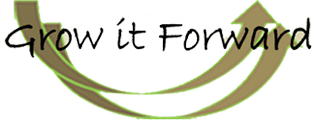Be Still
Sadness, grief, fear, anxiety, hyper-vigilance, agitation, confusion and worry, mixed with hope, faith, gratitude, determination, courage, compassion and love. This is a strange, overwhelming, and unbelievable time that is infecting all of us in one way or another. It is hard to know exactly what is happening, why it is happening and what will happen next. Most of us do not enjoy this level of uncertainty and for some it is terrifying.
One thing that is becoming clear is that life will not simply return to normal when this virus is under control. A pandemic of this magnitude shakes our very foundations, shatters some of our assumptions, and reveals our vulnerabilities. Some things we have taken for granted are gone forever. Sadly, it appears things are going to get worse before they get better.
We don’t know what the future holds but a new future will emerge. What kind of future will emerge depends, at least in part, on us. Will we learn the lessons that are inherent in this crisis? Will we remember the value of slowing down, not over-scheduling our lives, not always running after material pleasures and entertainment, and taking time to be with those we love? Will we notice that our planet can heal herself if we allow it? Will we take seriously the warnings of scientists, researchers, teachers, and other experts who are trying to tell us what we need to do to allow our planet to recover and once again become our healthy, beautiful, life-sustaining home?
Life is governed by systems and runs in cycles. There are big systems and small. Healthy systems and dysfunctional ones. Long cycles and short cycles. For example, there are systems of government and economies. There are family systems and systems of religion and cultures. In the natural world there are systems of ecology. If you stop and observe you can see cycles within all systems. Some like in nature are regular and predictable. Others go through stages and begin to break down when there is too much inequity, abuse, concentration of power and resources, too much enmeshment on the one hand or too many defensive barriers on the other. When these things happen systems become stagnant, lose resilience and can no longer adapt in healthy ways. When the overall system resilience is lowest, the potential for change is highest. Change is necessary but it is often chaotic, frightening, and painful.
So now we must stop, be still, observe, and listen. We need to turn inward and remember what it is that grounds us. We must reconnect with our highest selves, with one another, with the earth, and with our Divine source. Psalm 46 tells us that God is always present and is in control during times of crisis and chaos. Verse 10 gives us the admonition to “Be still and know that I am God.” Regardless of our religion or form of spirituality practice, we know deep down it is time to be still. Being still takes practice and not all of us have the time, inclination, or capacity for the kind of inner work it takes to attain true stillness. But we can sit Quietly and take long, slow breathes. We can pay attention to what we are feeling and how we need to be with ourselves. We can pray, meditate, reflect, and listen. These practices can help bring us the peace, confidence, and personal resilience we need to learn and then take courageous and wise action.






